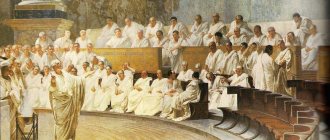Types of oratory
Rhetoric highlights the types of public speaking that you need to know in order to speak successfully in each specific situation.
Since oratory originated in Ancient Greece, there are outdated genera and types of oratory that have lost their meaning today.
The modern classification boils down to the following:
1) Socio-political oratory involves such forms of expression as a report on any economic, socio-political topics, diplomatic and political speech, agitation and rally speech, military-patriotic speech, as well as political review.
2) Academic oratory is distinguished by the presence of special terminology, a strict style of speech, argumentation, and logic, that is, it is scientific speech. This form presents such genres of oratory as a scientific report, lecture, message, review.
3) Judicial oratory is found in various trials and is distinguished by reasoning, objectivity, evidence, and sometimes has an evaluative nature. This type includes the following genres of oratory: accusatory speech, defensive speech.
4) Social and everyday oratory has several basic forms, and the oratorical techniques used in this type of eloquence reflect certain social, kinship, and family relationships. The most common types and types of oratorical speech of this type are anniversary, congratulatory, laudatory speech, toasts, memorial, funeral speech;
5) Theological-church oratory is represented by the oratorical genres of sermons and other church speeches. This type also has its own characteristics, expressed in the absence of argumentation, logic and evidence, and the content of the speech itself does not imply the need for the listed properties to be present in it, and the audience also does not expect the appearance of any arguments.
As a special variety, dialogical forms of oratory are distinguished, which are expressed in discussion, dialogue and polemics. They also have certain features associated with the need to influence a single interlocutor or several participants in the conversation.
In particular, the role of emotional and psychological techniques is significantly reduced, and the importance of argumentation increases, since there is no crowd.










